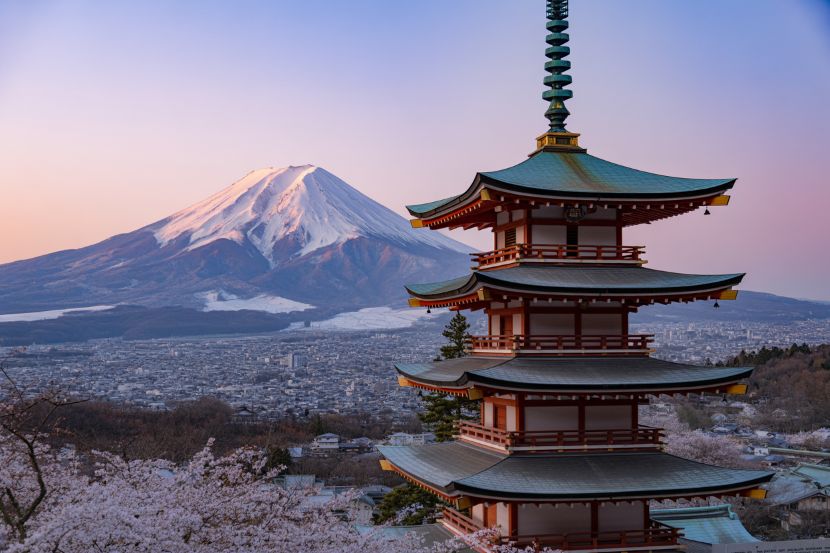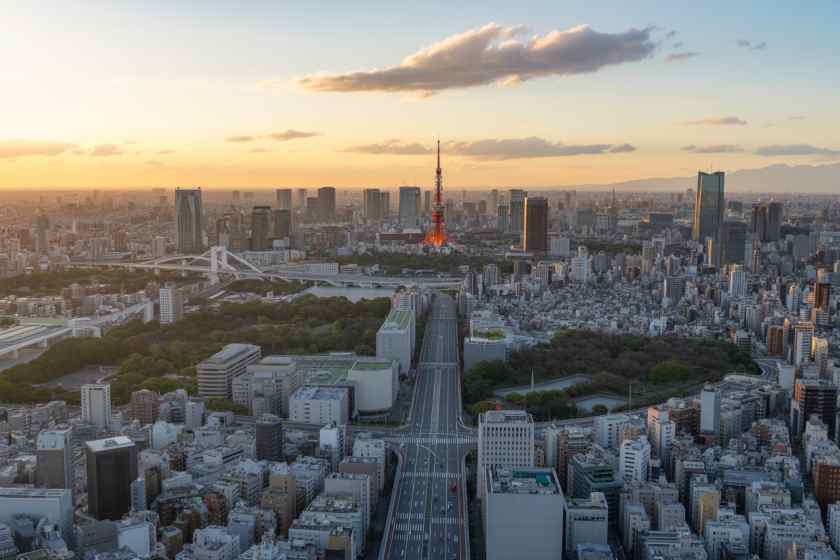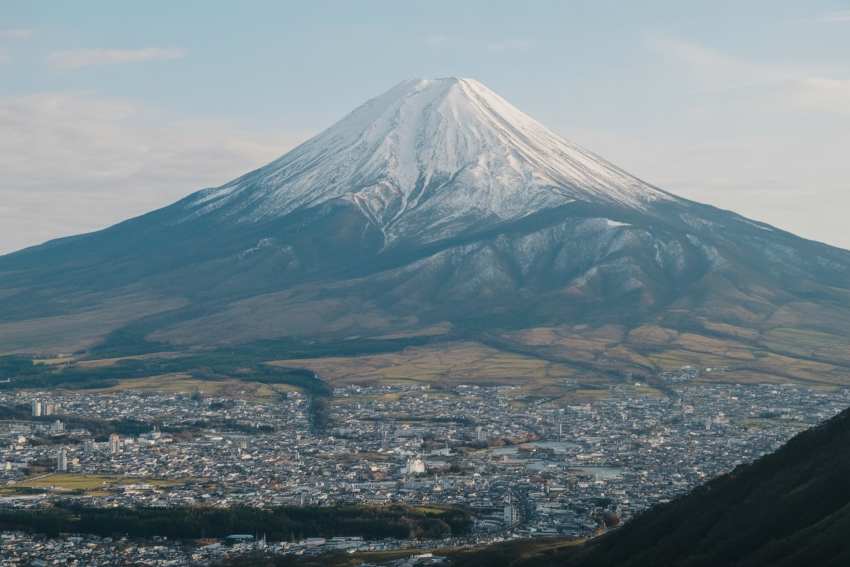
Published on
October 22, 2025

Japan understands how to sustain the positive impacts of tourism to continue being beneficial to the country. Proposed fee increases are currently being talked about, but the impacts are clear to over tourism, preserving Japan’s culture, and promoting over sustainable tourism.
With regard to Japan and the Rise in tourism, culture and eco-preservation globally can be hard to manage alongside tourism, especially for those in highly demanded tourism economies. Japan has shown positive impacts of tourism where better culture and eco-preservation tourism are also fulfilled alongside the economic and cultural tourism to Japan, where local communities are culturally and economically supported. Improved better tourism fulfilled the cultural and economic needs sought to Japan where local communities are benefited.
Japan’s Efforts to Manage Overtourism and Its Impact
Tourism is an integral part of Japan’s economy, and the country has long been one of the most popular travel destinations in Asia. However, the rapid growth of international visitors in recent years has led to increasing concerns over overtourism, particularly in high-traffic destinations such as Kyoto, Tokyo, and Osaka. These cities, often overcrowded with tourists, are facing significant challenges in maintaining local culture, managing environmental impact, and providing quality services.
The Japanese government, through its Ministry of Land, Infrastructure, Transport and Tourism (MLIT), has proposed raising visa fees and increasing the departure tax as part of its broader strategy to manage the pressures caused by tourism. Industry observers suggest that the proposed measures will help balance the influx of visitors with Japan’s capacity to handle them, ensuring a more sustainable tourism model.
Details of the Proposed Changes
The current single-entry visa fee for tourists traveling to Japan is set at ¥3,000 (approximately $19.89 USD), a rate that has remained unchanged since 1978. The Japanese government has recognized that these fees are relatively low compared to international standards, and the proposed increase aims to bring them in line with other major global destinations. At the same time, the departure tax—which was introduced in 2019 at ¥1,000 (about $6.63 USD)—is also expected to increase slightly.
The government plans to use the additional revenue generated from these changes to improve tourism infrastructure, enhance local services, and invest in cultural preservation efforts. This funding will go towards making tourism in Japan more sustainable, ensuring that both local communities and tourists can benefit from a more well-managed and thoughtful tourism ecosystem.
Industry Reactions: A Measure to Filter Low-Value Tourists
Tourism operators and industry insiders have mixed reactions to the proposed changes. On one hand, many acknowledge that the relatively small increase in fees is unlikely to dissuade tourists who are already planning their visits to Japan. The country’s ongoing popularity, particularly with favorable exchange rates, means that many travelers will not be deterred by a modest rise in costs.
However, some see this as a deliberate attempt to filter out low-value tourists—those whose behavior has been deemed problematic in some cases. Japan has faced increasing complaints about tourists who fail to respect local customs or engage in disruptive behavior. Examples include tourists posing for photos in sacred places like Kyoto’s temples or filming inappropriate content in public areas.
One notable incident involved a tourist filming themselves doing pull-ups on a torii gate at Atago Shrine, a sacred site in Kyoto. Another social media influencer caused a stir after pushing an elderly man on a train when asked to remain quiet. These incidents have sparked outrage on social media and prompted calls for stricter measures to control the type of visitors allowed into Japan.
In response, some travel operators have suggested that the fee increase is intended to deter low-value tourists while still attracting higher-value travelers. Masaru Takayama, president of Spirit of Japan Travel in Kyoto, explained that the government aims to prioritize visitors who respect the culture and contribute positively to the local economy.
Challenges in the Implementation of the Visa Changes
While the proposed fee increases are relatively small, the more significant concern lies in the potential changes to the visa application process. Currently, tourists can apply for visas online, making the process relatively easy and straightforward. However, if Japan changes the application process to require travelers to obtain their visa in person at an embassy, it could discourage some tourists, particularly those from countries without nearby embassies.
Taking the visa process too extreme can backfire, says Alex Litz, director of inbound promotion for Expedition Japan. Most tourists, he says, will not be put off by a small increase in fees, but a complex, inconvenient process may cause travelers to choose another visit.
According to Litz, most travelers are unlikely to be affected by the departure visa tax increase, as it won’t significantly impact their decision to visit. However, he suggests that if the process becomes too complicated, it could lead to feelings of being unwelcome.
Benefits of the Changes: Focusing on Responsible Tourism
Japan’s proposed adjustments to visa fees and departure taxes are part of a growing global trend where countries are seeking to promote responsible and sustainable tourism. The intention is not only to manage overtourism but also to create a tourism model that benefits both visitors and locals alike.
By making the country more expensive for tourists who are not willing to respect local customs or engage in responsible travel practices, Japan hopes to encourage visitors who appreciate the country’s unique cultural heritage. These visitors are more likely to contribute positively to the local economy, engage in respectful behavior, and help preserve Japan’s cultural landmarks.
Table: Proposed Changes in Japan’s Tourism Policies
| Policy Aspect | Current Status | Proposed Change |
|---|---|---|
| Visa Fee (Single Entry) | ¥3,000 (since 1978) | Potential increase |
| Departure Tax | ¥1,000 (since 2019) | Possible increase |
| Visa Application Process | Online application available | Potential shift to in-person |
| Target Audience | General tourists | Focus on responsible travelers |
Japan’s Path Toward Sustainable Tourism
Looking Forward to the Future, Japan has the understanding of how to continue to make the positive impacts of tourism beneficial to the country. The proposed fee increases are in conversations, but the impacts are clear to over tourism, preserving the culture of Japan, and to promote and encourage better sustainable tourism.
Regarding Japan and the world, culture, and eco-preservation along with the Rise in tourism are very difficult to manage, and people of different nations are trying to manage their own highly demanded tourism. Japan has demonstrated engagement of undeniable positive tourism and of better tourism on culture and eco-preservation along with fulfilling the better cultural and ecomomic tourism needs of the fast sought positive growing tourism to Japan where local communities are cultural and economically benefited. Japan has demonstrated engagement of undeniable better tourism by fulfilling the cultural and economic needs of the positive growing tourism sought to Japan where local communities are benefited.
link







